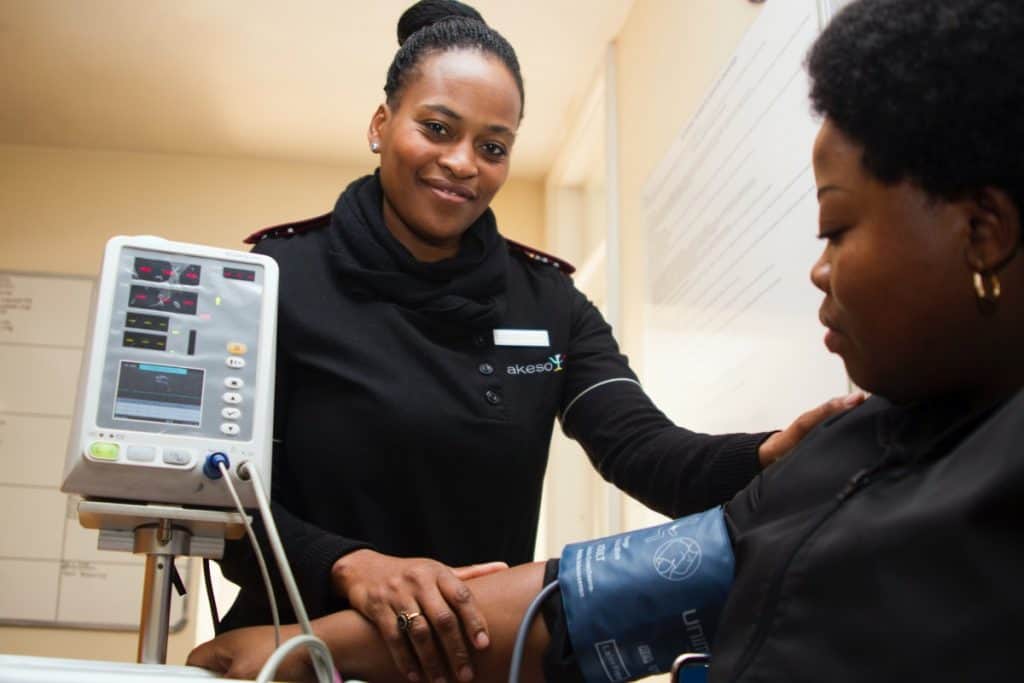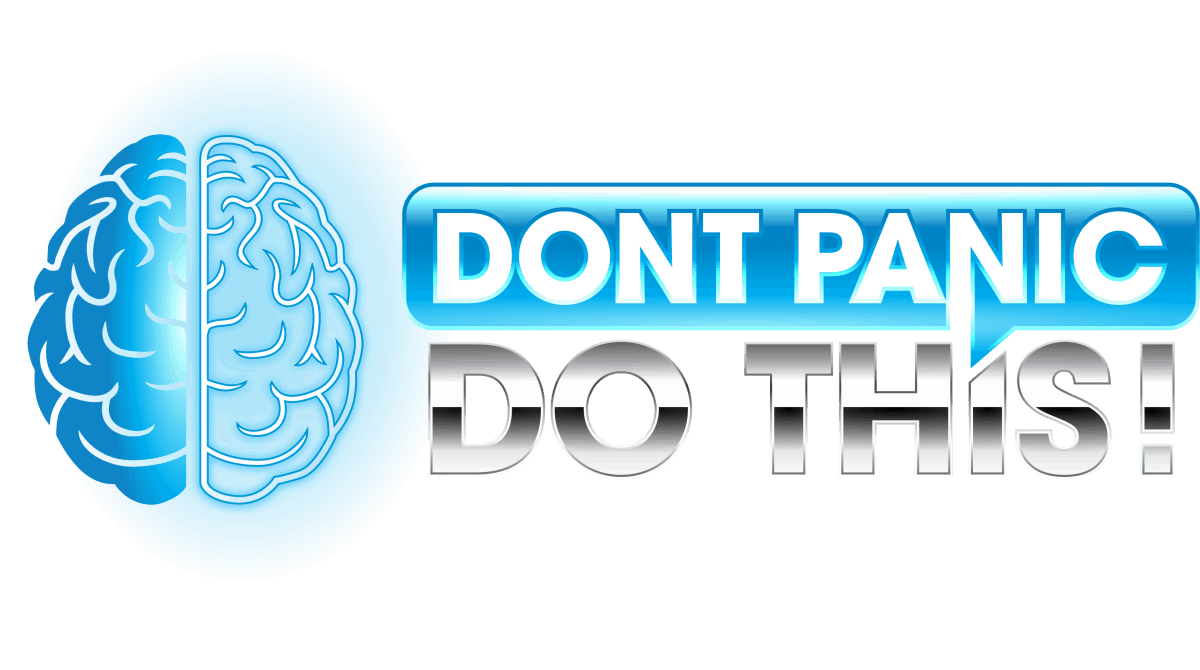The very first time I had a panic attack, I was convinced that there was something wrong with my heart. I laid on the couch, struggling to breathe, desperately hoping my parents would just call me an ambulance. I'm sure you may also be wondering now, should I go to the ER for a panic attack?
You do not need to go to the ER if you are having a panic attack, because a panic attack is not a life-threatening emergency; you cannot die from a panic attack. The only time you should go to the ER for a panic attack is if you have never felt this way before, have underlying health issues, or are having thoughts of self-harm.
Okay, so we know that a panic attack in and of itself is not something to go to the ER for. But how do we know if it’s a just a panic attack, or if it's something more? What happens at the ER if we do go? How can we stop a panic attack without going to the ER?
Keep reading, and I’ll answer all of these questions and more!
Should I go to the ER For a Panic Attack?
Have you felt this way before?
The very first thing you need to ask yourself when you’re having a panic attack is: have I felt this way before? Oftentimes, our first panic attack is the scariest, since it really can mimic the symptoms of a far more serious health issue.
My first panic attack was easily the scariest half hour of my life. I was 16 or 17 years old; right around the middle of high school-age. It started with a random and harmless heart palpitation, but to me it felt like a kick to the chest that I wasn’t expecting. My surprise and fear of the unknown caused me to panic and hyperventilate, making me feel light-headed and nauseous. I didn’t know what was happening, all I knew was that I couldn’t stop it. I was convinced that I was having a heart attack, and desperately wanted my parents to call an ambulance for me.
If you’ve never had a panic attack before, there’s a chance that your first one could be just as intense as mine was. In this case, it’s understandable why you might feel as though you need to go to the emergency room. But, if you have had previous panic attacks – before dialing 911, ask yourself if this feels like the panic attacks you’ve had in the past. If the symptoms of your panic attack are similar to the symptoms of your other panic attacks, chances are this is just another panic attack. There should only be cause for concern if you’re experiencing new chest pain or other symptoms that are significantly different than what you’re used to.
Have you been checked out before?
Even with my first-time freak out from a panic attack, I didn’t actually go to the ER (even though I honestly wanted to). What I did do was get my heart checked out soon thereafter, just to make sure everything was okay. I had bloodwork done and saw a cardiologist for an electrocardiogram (EKG). Being a fit and healthy teenager, it obviously wasn’t surprising to any of the doctors that my heart was fine, and that I was in perfect health. I learned that the panic attacks were in fact responsible for these terrifying physical symptoms. At the time, this was huge for me – the idea that my thoughts could actually hijack my body's automated functions.
Getting the EKG and bloodwork done may have seemed like a waste of time, but it actually gave me tremendous peace of mind just to be assured that I wasn’t actually going to die. If you’ve never had these sorts of check-ups with your doctor, it might be something you want to consider – even if it’s only for the peace of mind.
Once the doctor can confirm that your physical health is fine, it can greatly help to calm your mind during a panic attack. This way, with future panic attacks, you can remind yourself that you have already been checked out, and should have no cause of concern regarding your physical health (in other words, a trip to the ER would be pointless!).
Do you have any underlying health issues?
If you do have any underlying health issues, this may be something to take into account during a panic attack. If you have a known history of heart disease and suddenly, you’re experiencing chest pain and tightness after straining your body physically, this is an example of when your panic attack could be more than just a panic attack, and when you might consider calling for an ambulance.
A heart attack, a collapsed lung, or a blood clot in the lungs are all examples of serious health emergencies that can feel similar to a panic attack. When deciding whether or not to go to the ER, you will need to try and consider the situation logically. If you are young and healthy, have been checked out recently, and have no personal or family history of illness, there’s a good chance it’s just a panic attack. If you’re older, not in the best health, and have a family history of illness, you may need to consider that it could be more than just a panic attack, and act accordingly.
Are you having thoughts of hurting yourself or others?
If you are ever having thoughts of hurting yourself or others, you should seek professional help immediately. You can dial 911 for this in the US, and ask to be taken straight to the hospital if need be. This is a mental health emergency and should never be dismissed or ignored.

Panic Attack vs Heart Attack
Many symptoms of panic attacks can feel similar to the symptoms of a heart attack. Some symptoms that both events have in common include:
- Chest Pain
- Sweating
- Shortness of Breath
- Nausea
- Dizziness
Despite their similarities, there are some differences between the two that can help you to determine which one you’re suffering from. Some of the factors to consider include:
- Risk Factors – As mentioned earlier, you should always take your risk factors into consideration. If you’re under 40 years old and physically fit, with no prior history of illness, it’s unlikely that you’re having a heart attack. If you’re over 40 and overweight, diabetic, a smoker, or have high blood pressure or a family history of heart disease, you need to take these risk factors into account.
- Trigger – Heart attacks typically follow intense physical exertion. If your chest pain and symptoms are triggered by a strenuous cardiac effort, this may be cause for concern. If your symptoms are triggered by something that makes you anxious (like speaking in front of a crowd or going on a date), it is more likely just a panic attack.
- Type of Pain – While panic attacks can feel very different from person to person, chest pain from a panic attack is usually sharp and felt directly in the center of the chest. Pain from a heart attack typically feels more like a tightness or squeezing sensation in the chest, which can often be felt shooting out to the arm, jaw, or shoulders.
- Duration – Many panic attacks will only last for a few moments – even the worst ones are typically over within half an hour. If you’re experiencing chest pain for longer than this and it’s worsening over time, this could be a sign of a heart attack.
When trying to figure out whether you’re having a panic attack vs heart attack, these are the factors you need to consider. The specifics can be hard to differentiate when you’re flustered, but if you really try to consider the little differences, it can make it much easier to recognize when you’re merely suffering from a panic attack vs a heart attack.
Are Panic Attacks Dangerous?
Can you die from an anxiety attack?
Panic attacks can be terrifying events that often feel life-threatening. However, most panic attacks only last a few minutes, and will typically be over in less than half an hour. You cannot die from a panic attack, and they do not pose an immediate threat to your health.
With that said, it may be worth examining some of the indirect effects that panic attacks can play on our health.
Can a panic attack cause a heart attack?
A panic attack will not cause a heart attack. Heart attacks are caused by blockages in blood vessels of the heart. When a section of the heart becomes blocked and is unable to receive oxygen-rich blood, that section of the heart muscle begins to die. Panic attacks can increase our pulse rate and feel unpleasant, but this alone would not be responsible for causing a heart attack.
Can a panic attack damage your heart?
A panic attack is not going to directly damage your heart from a one-off event. However, research does suggest that there is a relationship between panic disorder and the risk of developing heart disease or having a heart attack. According to this study, individuals with panic disorder are up to 36% more likely to have a heart attack, and up to 47% more likely to develop heart disease. The mechanism of this relationship is unclear, but present. For those with panic disorder reading this, I don’t believe this is cause for immediate concern, but it does make it all the more important to keep your panic disorder in check and to also be mindful of your physical health.
Panic Attack Blood Pressure
Panic attacks do not increase your blood pressure in a long-term capacity. However, in the short-term, panic attacks can increase blood pressure significantly. If you’re suffering from panic attacks on a daily basis, this can be taking a toll on the heart, kidneys, and blood vessels. People who suffer from anxiety disorders are also at greater risk to be smokers, drinkers, or to overeat. Because these lifestyle factors can also contribute to raising blood pressure, you should make an attempt to get ahead of this by talking to your doctor about ways to keep your blood pressure within healthy parameters.




Can You Go to the Hospital for an Anxiety Attack?
You can go to the hospital for an anxiety attack; in fact, it’s pretty common. According to this study, .93% of all emergency department visits in the U.S. were due to anxiety. That’s almost 1 out of every 100 people going to the hospital just for anxiety. That’s quite a bit!
Chances are, if you call an ambulance, the EMT or paramedic that arrives will be able to recognize that you are having a panic attack. Although panic attacks can look a lot like more serious conditions, medical professionals get false alarms with panic attacks all the time, and they know what to look for. Most likely, they will be able to help you calm down after a few minutes or so, and they’ll save you the trip to the hospital altogether. If things don’t get better on their own, they will likely give you the option to go to the hospital for further examination and treatment.
Panic attack hospital treatment
You can be hospitalized for anxiety if it is severe enough and cannot be treated with outpatient care. However, in most cases they will be able to quickly provide some method to help decrease your anxiety and send you on your way.
Can the ER do anything for anxiety?
If you go the ER for anxiety, they can give you an EKG or chest X-ray, and do some bloodwork to make sure that your panic attacks are not actually being caused by a more serious health condition in disguise. Hospitals may also give you some sort of anti-anxiety medication to help you calm down for the time being. Ultimately, the ER can’t do much for anxiety beyond that, and they will likely suggest that you see a therapist and begin a psychotherapy treatment like Cognitive-behavioral therapy (CBT).
How to Deal with Panic Attacks at Home
Using all of the information provided above, you should probably have a good idea now whether your symptoms are being caused by a panic attack or by a more serious health condition. If you feel comfortable in determining that it is just another panic attack, you can skip the trip to the emergency room altogether and begin to practice ways of stopping a panic attack at home.
Some good tricks to quickly stop a panic attack include:
- Remember, you’re not dying. You’re just having a panic attack. This is going to pass.
- Take control of your breathing. Try breathing 6 seconds in through your nose and 6 seconds out through your mouth.
- Talk to someone you trust. You can talk about your anxiety or just talk about something else to distract you from it. Try and get your thoughts out of your own head.
- Go for a jog or do some pushups. Redirect your energy in a positive way and get your mind on the physical sensation of movement, instead.
- Take an anxiety supplement. We recommend plenty right here on the site; just something to help you calm down for now.
For a more comprehensive list of methods, check out this article on how to stop a panic attack.
Remember, no matter how scary it may seem, it should be over in half an hour tops! This is a temporary emotional state, and you will not feel this way forever.
When to go to Urgent Care for a Panic Attack
Even for a non-emergency like a panic attack, sometimes things can just feel out of hand; like you’re spiraling out of control and can’t get a grip on your panic attack. If this is the case, have someone take you to Urgent Care, or your local doctor’s office. Oftentimes, panic attacks can make us feel like we’re going to die. Just knowing that we are in the presence of trained medical personnel is usually enough to help us relax a bit; we feel safe knowing that even if the worst does happen, we are in good hands.
Also, they’ll be able to run some tests on you to make sure that there really is nothing more serious going on. If all else fails, they may decide to prescribe you some medication to stop anxiety; just remember, this is probably not something you want to be relying on long-term.
I hope you found this information helpful, and I hope you feel better soon! 🙂


